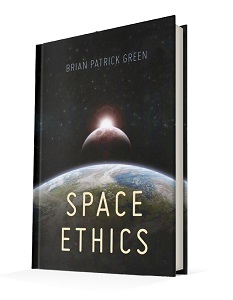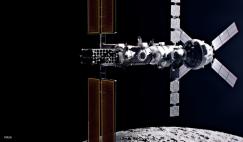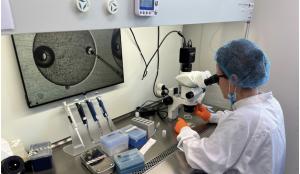With the rise of NewSpace, increasing commercial activities in low Earth orbit and the long-overdue realisation that space debris could end it all, the topic of space ethics has become acceptable.
I say ‘acceptable’ because there has historically been a view that space should not be over-regulated and that stringent restrictions on what entrepreneurs are allowed to do there would ‘cook the golden goose before it had even hatched’. Isn’t space difficult enough without having to worry about ethical issues?
In the past decade or so, however, space ethics – which I like to define as ‘what we should and shouldn’t do in space’ – has been the subject of an increasing number of academic papers and texts such as this one. What immediately impressed me about this book was its title, which is simply Space Ethics – no verbose subtitle, no need to expand; that’s the title; that’s the subject.
The book itself is divided into 15 chapters with equally transparent titles, such as ‘why space ethics?’, ‘risk and safety’ and ‘the dangers of space debris’. In typical academic style, each chapter concludes with a ‘discussion and study questions’ section, notes and references. It also features a glossary/key words section, a bibliography and an index. Illustrations are limited to a single monochrome photo at the head of each chapter.
The author states the purpose of the book is “to look at the exploration and use of space through an ethical lens” and “provide an insight” into ethical questions such as “Is it good?” and “Should we?”
Although there is a bit of historical background on ‘exploration’, the author must be commended on getting down to the difficult questions in the first few pages with headings such as “In favor of going into space” and “Against going into space”. He also puts his cards firmly on the table with a summary of his own views: “I believe it is important to be honest about my own positions in this debate”, he states. For the avoidance of doubt, he says that if his answer to “Should we go?” was ‘No’, he would have written “a very different book, or perhaps no book at all”.
The author’s approach is, as mentioned, academic, but it is also practical in wanting to provide a toolkit for the discussion and understanding of ethics in general and space ethics in particular. Thus, we find suggested approaches to ethics, ethical concepts and principles, and tools with which to analyse the topic of interest.
Readers on the ‘artistic side of the cultural divide’ will have little difficulty with the presentation and will learn how to apply the tools and principles to the space endeavour, while those on the ‘scientific side’ will potentially benefit from a new way of looking at the exploration and development of the space environment.
As if to summarise the overall benefit of the discussion, the author begins his concluding section with “Space is the next step for ethics, and ethics is the next step for space”. What we must hope is that only steps are needed… and not giant leaps!











